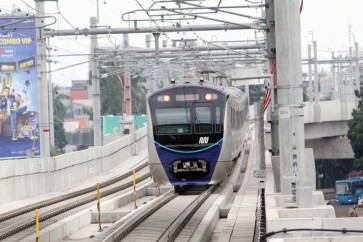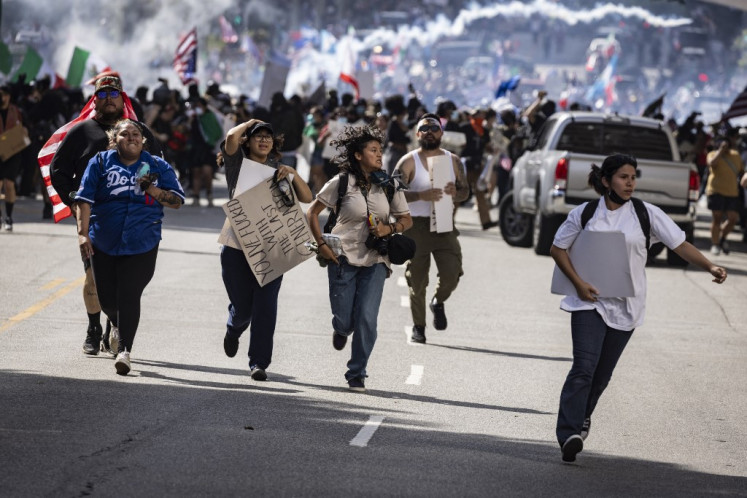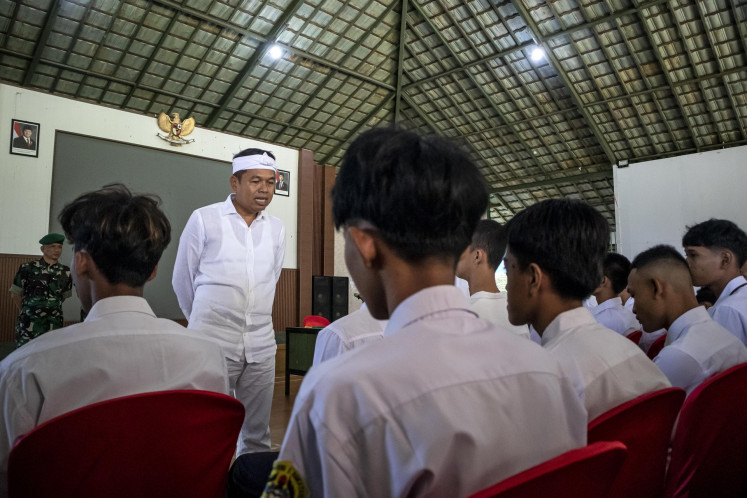Govt to protect the rights of fishermen
The Maritime Affairs and Fisheries Ministry has issued a ministerial regulation to protect and uphold human rights in the fisheries industry, making it a requirement for all firms to possess a human rights certificate
Change text size
Gift Premium Articles
to Anyone

T
he Maritime Affairs and Fisheries Ministry has issued a ministerial regulation to protect and uphold human rights in the fisheries industry, making it a requirement for all firms to possess a human rights certificate.
During the announcement of the regulation on Thursday, which coincided with International Human Rights Day, Minister Susi Pudjiastuti said that the regulation, the first of its kind in the country, was badly needed as the fisheries industry, worth billions of dollars, had been built upon gross human rights abuses.
'During the 12th annual meeting of the Western and Central Pacific Fisheries Commission (WCPFC) in Bali, businesspeople from all over the world sat together and discussed the quantities of fish each country could catch per year. We talked about how fresh tuna worth thousands of dollars is being served in five star hotels while, at the same time, on fishing vessels, hundreds of thousands of crew members have to live with rationed water due to the lack of drinkable water made available at sea,' she said at her office in Central Jakarta.
Susi said that the fate of Indonesian crew members overseas was not much better than their counterparts working in Indonesian waters.
'Five Indonesian crew members died off the coast of Angola, one-by-one [in seven days, due to starvation]. We read that news and we might feel sad for a second, but then it passes and no one remembers anymore,' she said.
Susi said that there was still a lack of attention being paid to the suffering of Indonesian fishermen.
'As a modern nation, we shouldn't be allowing such slavery to continue. Every time we eat, we should remember that someone has had to work up to 20 hours per day, ration drinking water and suffer abuse in silence, without choice, because they are working in the middle of ocean. They can be thrown out of the vessel if they fight or defend their rights or their dignity as a human being,' she said.
According to Mas Achmad Santosa, head of the task force for the prevention and eradication of illegal, unreported and unregulated (IUU) fishing, the regulation consists of two points: the human rights system for fisheries and human rights certification.
'The human rights system comprises of human rights policies, human rights due diligence and human rights restoration,' he said on Thursday.
Therefore, anyone who has a fishery business is now required to issue a declaration of commitment to uphold human rights, such as refraining from the practice of slavery. They also have to conduct due diligence by identifying potential human rights violations in their operations.
'[Minister Susi] will establish a human rights task force that will be responsible for conducting the accreditation of those tasked to carry out due diligence,' said Achmad.
If human rights violations have already occurred, we need to ensure that the impact of the violations are mitigated as soon as possible.
To ensure that the regulation is being implemented, all firms will have to appoint a coordinator in charge of due diligence, this person will act as a bridge between the firms and the government, according to Achmad.
Under the second point, all fishery firms will also be required to obtain a human rights certificate in order for them to operate.
Last year, the ministry began to conduct foreign fishing vessel license audits (Anev), in which the government subsequently discovered rampant human rights abuse in the form of human trafficking, people smuggling, child labor, forced labor, workers without any form of social protection, wage discrimination and physical abuse.
'The Anev result shows that at least 168 of the 1,132 vessels audited, 14.8 percent, were involved in human trafficking and using forced labor,' Susi said.









